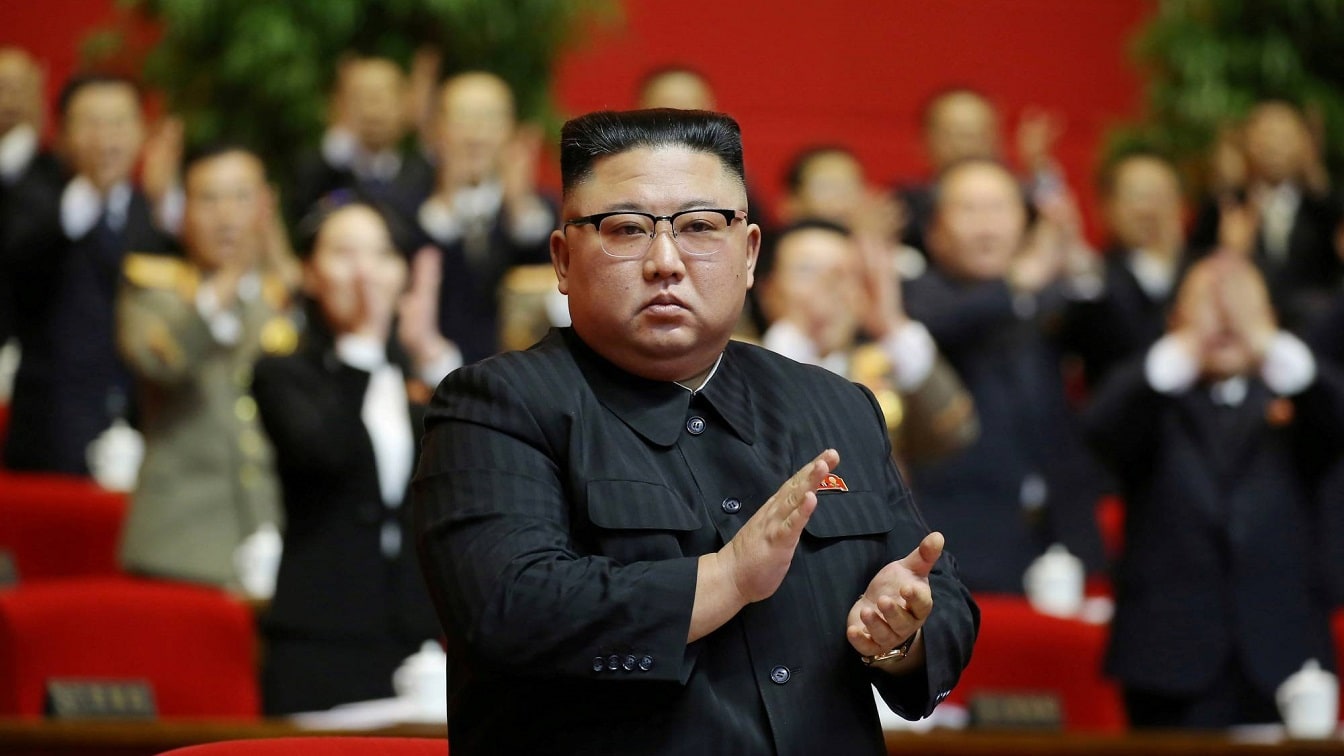Just how bad could things get? After two years of denial, North Korea admitted its first COVID-19 case on May 12 and imposed a nationwide lockdown in response. The regime’s public admission and draconian response suggests the situation was too severe to remain concealed. Within a day, Pyongyang revealed the epidemic had been raging for weeks and already affected hundreds of thousands of people.
North Korea is one of only two nations in the world to have not inoculated any of its citizens. The country’s rudimentary heath care system, emaciated population, and lack of medical supplies make it dangerously vulnerable to a dire pandemic crisis.
The international community will likely reiterate offers of assistance, but the regime rejected all previous proposals. Any distribution of international aid would be hampered the departure in March 2021 of all nongovernment organizations from North Korea.
At a May 12 Politburo meeting, North Korean leader Kim Jong Un discussed the “most serious state emergency incident” arising from an unspecified number of residents of Pyongyang being detected with COVID-19 omicron variant BA.2.
Kim directed the “top emergency epidemic prevention” be implemented. Measures include a nationwide lockdown of all cities and counties to isolate “each working unit, production unit and living unit from each other.” Kim was seen on North Korean media wearing a mask, possibly for the first time.
A day later, North Korea revealed an unidentified fever had “explosively spread nationwide” since late April, affecting 350,000 people, of whom 162,000 had recovered. On May 12 alone, 18,000 new cases were identified nationwide. There have been six deaths, one of which was identified as the COVID-19 omicron variant, and at least 187,000 people remain in isolation. Given the low level of testing in North Korea, the extent of the outbreak is likely far higher.
North Korea first declared a national emergency quarantine system in January 2020 and rapidly implemented quarantine measures far more extensive than those imposed during the 2003 SARS, 2014 Ebola, and 2015 MERS outbreaks. The regime closed its borders, suspended all travel into and out of the country, recalled officials stationed in China, and imposed a quarantine of up to three months on all inbound cargo.
Foreign trade plummeted, adding to economic woes brought on by the repressive socialist economy, international sanctions, and natural disasters impacting agricultural production. Even before the outbreak of COVID-19, Kim in December 2019 warned North Koreans to expect dire economic conditions and called on the public to “tighten their belts” after several years of promising an improving economy.
Although the regime had previously claimed there had not been a single case of COVID-19 until this month, there were reports in early 2020 that major cities in North Korea had been affected by the epidemic and more than 100 soldiers stationed near the Chinese border had died.
In July 2020, Kim similarly convened an emergency meeting of the Politburo due to fears that the “vicious virus” had entered the country from a North Korean defector who returned to North Korea illegally after reportedly contracting the disease in South Korea.
At that time, Kim declared a state of emergency and ordered a lockdown of the city Kaesong near the demilitarized zone, blocked off other cities, restricted travel into Pyongyang as well as between provinces, and imposed quarantines on anyone who had visited Kaesong. The defector’s COVID-19 test results were inconclusive.
North Korea has repeatedly rejected offers by the United States and the international community of COVID-19 vaccines as well as humanitarian, food, and medical assistance. There are no U.N. or U.S. sanctions on food, medicine, or humanitarian assistance. All U.N. resolutions and U.S. laws have language highlighting that any punitive measures do not cover those items.
The U.N. sanctions committee emphasized that U.N. sanctions “are not intended to bear a negative impact on the people” of North Korea. Some sanctions, however, prohibit certain high-tech equipment that could potentially be of use to the nuclear and missile programs. The U.N. has approved exemptions so diagnostic and medical equipment can be transported into North Korea, but the shipments were hampered by the regime’s strict quarantine restrictions.
In 2020, North Korean cyber hackers targeted at least six pharmaceutical companies in the U.S., the U.K., and South Korea that were working on COVID-19 treatments, including Johnson & Johnson, Novavax, AstraZeneca, Genexine, Shin Poong, and Celltrion. It was unclear whether North Korea was attempting to create its own vaccine or to sell obtained vaccine information to a foreign pharmaceutical company.
In 2021, a member of the South Korean National Assembly asserted that North Korea had targeted Pfizer to gain COVID-19 vaccine information.
It is unknown if the current state of emergency will lead Pyongyang to call for international support. The United States, in conjunction with international partners, should repeat their offers of medical and humanitarian assistance. Washington should urge the U.N. sanctions committee to expeditiously process requests for sanctions exemptions to ensure humanitarian assistance is not inadvertently blocked.
The U.S. and other nations should be willing to provide immediate aid to ameliorate medical or natural disasters that impact the populace while concurrently refraining from large-scale assistance that benefits the regime’s prioritization of the military over the needs of its citizens. Large-scale provision of food should be contingent on strict monitoring requirements.
The North Korean regime is responsible for the appalling condition of the repressed people of the country. Prioritizing military spending, including the prohibited nuclear and missile programs, along with disastrous socialist economic policies, have decimated the North Korea’s ability to provide for its citizens.
The national lockdown will further exacerbate the country’s economic problems and food shortages. Kim’s repeated rejection of COVID-19 assistance may have doomed his populace to needless suffering and death.
Bruce Klingner, a senior research fellow for Northeast Asia at The Heritage Foundation’s Asian Studies Center, spent 20 years in the intelligence community working at the CIA and Defense Intelligence Agency.

